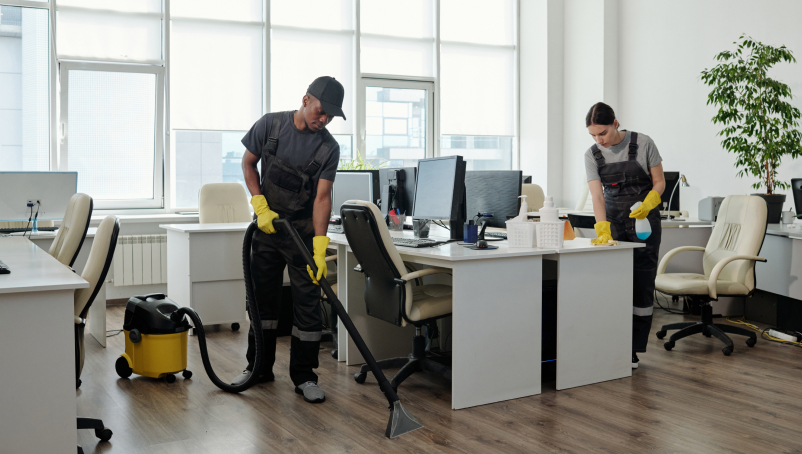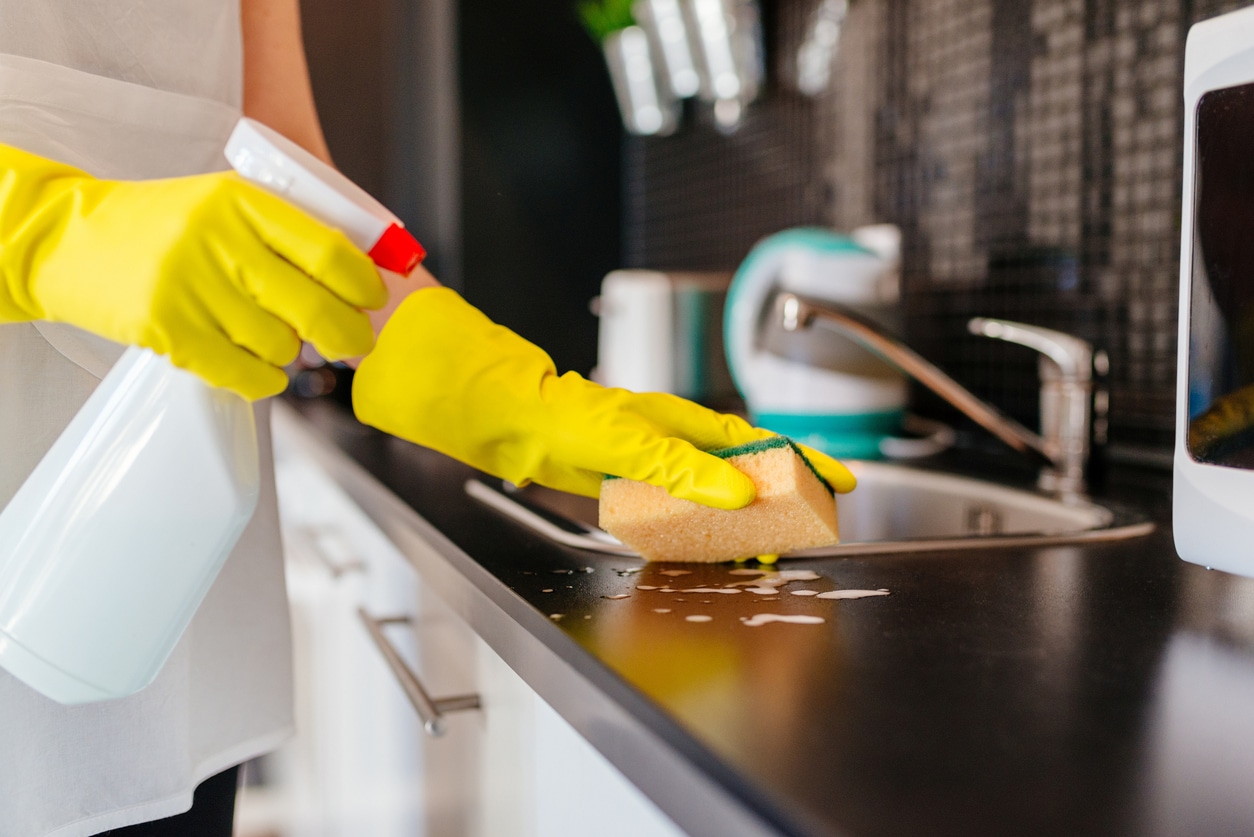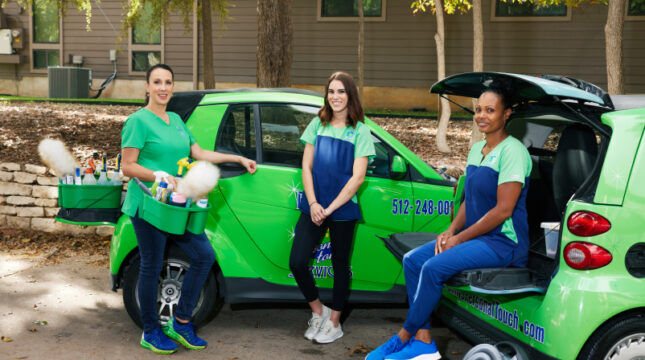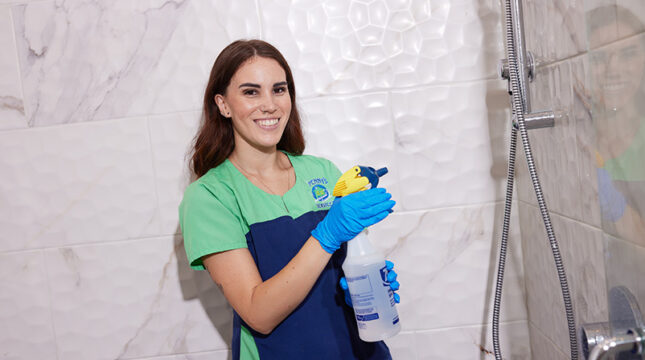1. Get the right business licenses
Requirements for business licenses and permits vary by state and city. You may need a vendor’s license and a “doing business as” (DBA) registration. Always check with your local licensing board and state revenue department to see what’s required where you do business.
Proper licensing isn’t just about compliance. Even if it’s not required, it an show potential clients that you’re legitimate and trustworthy.
2. Identify your ideal customer
Clearly defining your niche helps you understand how to get commercial cleaning clients more effectively. Offices, factories, schools, hospitals and industrial facilities each have unique cleaning needs. Some need special products or have specific Occupational Safety and Health Administration (OSHA) standards.
Positioning yourself as a commercial cleaning specialist (office cleaning, window cleaning etc.) helps you stand out and win more commercial clients. Identify potential clients and communicate with property managers to secure cleaning contracts.
3. Compare yourself to the competition
Know your competitors and what they offer. Big cleaning franchises have lots of resources. Highlighting your unique strengths — like you’re locally-owned, woman-owned, dedicated to green cleaning, etc. — can help you get more clients for your cleaning business.
Think about what makes you different. Do you use special cleaning techniques or are you an eco-friendly business? Is your customer service exceptional? Clearly share these strengths to help attract new clients.
4. Protect your cleaning business with insurance
Commercial cleaning has risks like bodily injuries, property damage and equipment loss. Cleaning business insurance can help protect your finances and show your professionalism. It can help give clients confidence that your business is financially responsible and trustworthy.
Most commercial cleaners can benefit from these types of business insurance:
General Liability insurance
This coverage helps protect your business from common accidents, like slip-and-falls or accidental property damage. It shows clients you can handle problems responsibly. General liability can help pay for some medical expenses, repair or replacement of some damaged items and some legal costs.
Learn more about general liability for cleaning businesses.
Workers’ Compensation insurance
Workers’ comp is required in most states if you have employees. It can help with medical expenses and wages if employees get injured or sick at work.
Learn more about workers’ comp for cleaning businesses.
Tool and Equipment insurance
If your work gear gets lost, damaged or stolen, tools and equipment coverage can help pay for replacement or repairs to help your work continue with minimal interruption. Tools and equipment coverage is an add-on to general liability insurance for cleaners.
Commercial Auto insurance
If you drive for work, commercial auto insurance can help cover the costs of some vehicle repairs, accident damages and medical expenses from vehicle-related incidents.







